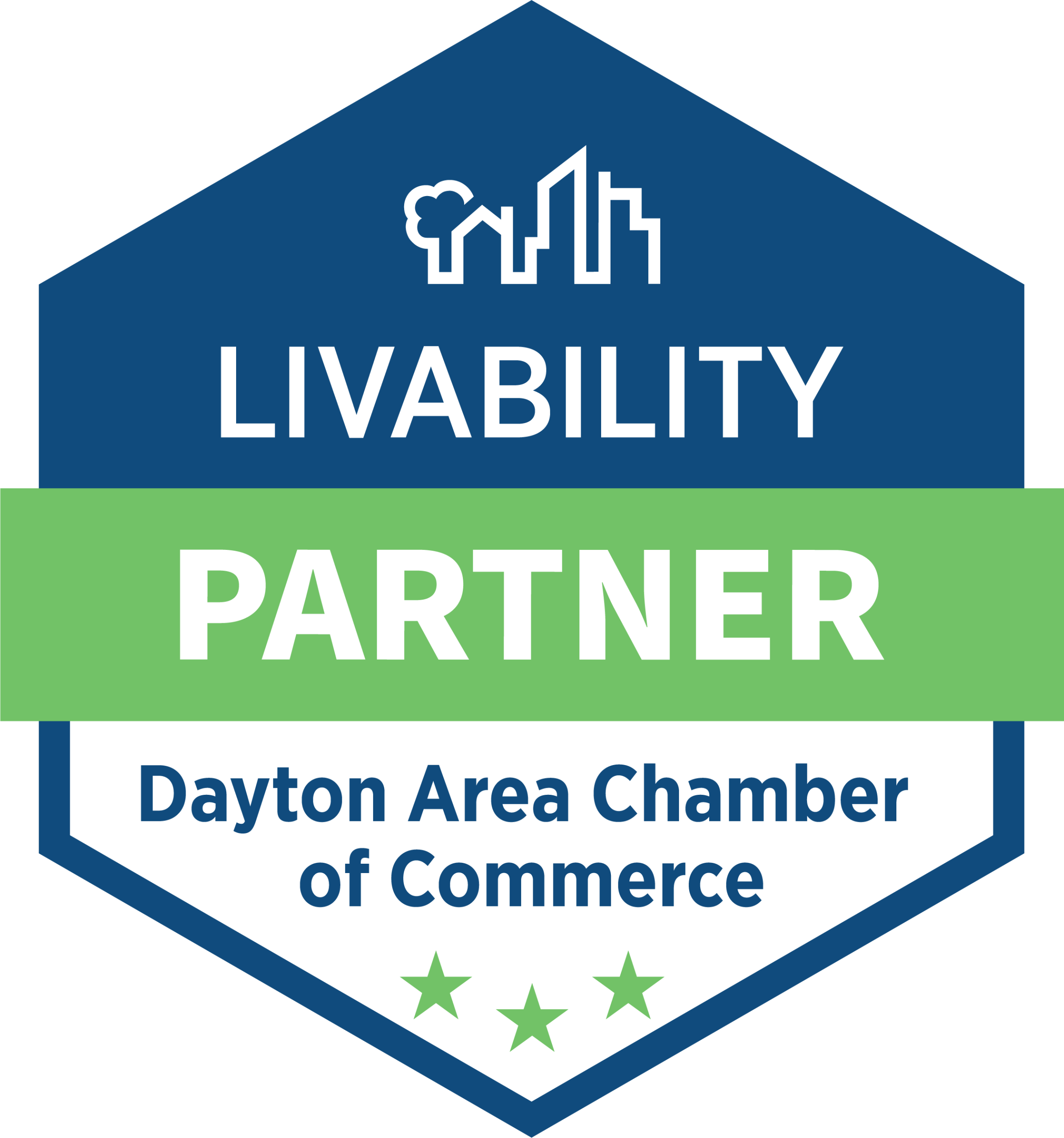Voice of Business: Business Insurance FAQs during COVID-19
The COVID-19 pandemic has left many Dayton area businesses scrambling to figure out how to make up for lost revenue, and what their business models will look like on the other side. They’ve been forced to quickly become experts on unemployment, financial processes, and insurance coverage.
The pandemic is expected to raise many coverage and resilience issues for both insureds and insurers. As event continue to unfold, organizations should work closely with their advisors and counsel to address the various issues presented.
Dayton Area Chamber member Marsh & McLennan Agency has been working hard to answer these questions for businesses in our area, and provides these answers to your frequently asked questions.
Q: ARE LOSSES UNDER TRADITIONAL PROPERTY POLICIES ONLY TRIGGERED BY DIRECT PHYSICAL DAMAGE?
The answer is generally, yes, there needs to be insured physical loss or damage. Some policies may include coverage for business interruption loss, other time element coverages, and extensions such as interruption by civil authority, ingress/egress, attraction or leader property, and contingent business interruption/extra expense while policyholders may look to the interruption by civil authority extension in their property policies for potential coverage. In connection with the Pandemic, the various arguments for coverage continue to evolve.
A careful review of specific policy language will be required and organizations with potential losses should collect appropriate documentation, present claims to insurers in a prompt and timely manner, and follow the terms and conditions of their policies.
Q: IF CONSTRUCTION IS DELAYED DUE TO COVID-19 AND THEREFORE DELAYS THE ISSUANCE OF THE HANDOVER CERTIFICATE, IS THERE COVERAGE FOR FINANCIAL LOSS DUE TO THE DELAY?
Under traditional builder’s risk policies, insured physical loss or damage is necessary to trigger a response under the policy. If COVID-19 manifests at an insured’s premises with people becoming ill, insurers could contend that such effects do not constitute physical loss or damage. Similarly, insurers may argue that possible contamination, proximity to other contaminated premises, or fear on the part of the public also do not meet the criteria for physical loss or damage.
In a standard builder’s risk policy, it is unlikely for any type of coverage to be triggered, including civil authority or ingress/egress coverage extensions if a site access is restricted or prohibited by an authorized governmental agency or clients’ officers. Similarly, any potential financial loss due to delay in completion as a result of prolonged shut downs etc. wouldn’t likely trigger coverage under the policies due to lack of direct physical loss or damage to the project.
Details and fact patterns on losses will differ for each client. Although there may be no obvious coverage trigger at the moment, things are continuing to evolve and change. We encourage clients to report losses to insurers if they feel that they have a potential loss. Ultimately, it will be insurers who will decide if there is coverage.
Q: IS THERE ANY BUSINESS INTERRUPTION (BI) COVERAGE AVAILABLE UNDER A STOCK THROUGHPUT (STP) POLICY?
Most standard BI coverages as contained with the property policy form. While an STP policy generally doesn’t cover BI losses as such, because an STP policy generally pays out on the basis of the agreed valuation clause, and STP policies generally value finished goods at their selling price or an otherwise agreed upon basis of valuation that contemplates some form of built-in profit, recovery of those lost profits is somewhat akin to recovering BI. There may be some limited Extra Expenses (EE) in the event that a client has to reroute a voyage due to port blockage/delay/interruption in transit, but this will depend on each specific circumstance and the specific EE clause in the policy, if applicable — not every policy will have this provision.
Watch a video with Marsh & McLennan’s Jeff Lightner that further explains the role Business Interruption Insurance plays during the pandemic.
Q: WHAT GUIDANCE CAN YOU PROVIDE AS IT RELATES TO GOVERNMENT MANDATED FACILITY, OFFICE, RETAIL SHUTDOWNS?
Under many property policies, in order for coverage to be triggered — including any BI or Time Element (TE) coverage — there must be insured physical loss or damage
to property. The damage must be of the type insured under the policy due to a covered cause of loss, such as fires, explosions, windstorms, or other specified events. This requirement also commonly applies to the interruption by civil authority extension. According to insurers, a pronouncement by a civil authority (however that authority is defined by the policy), is often insufficient to qualify as a covered cause of loss, and insurers will likely not respond to a BI or TE loss as a result. With that being said, we would encourage clients to present any potential claims with all supporting documentation and then let the insurance carrier(s) make a formal coverage determination.
Q: DO PRIVATE COMPANIES HAVE D&O EXPOSURE TO THE PANDEMIC AS WELL?
A question that we’ve seen come up is one that many of you may have been thinking — since we are a privately held company, do we have any D&O exposure as a result of COVID-19 the same way that a public company does? The general answer is yes, but the degree to which a private company is exposed will vary largely depending on the company’s makeup and market segment. Private companies can certainly be exposed to event-driven litigation in a similar manner as public companies, but these types of claims typically come from outside shareholders. If you are a private company that has numerous outside shareholders who are not executives or employees of the organization and are not on the board of directors, they could certainly bring suits alleging damages as a result of negligence or mismanagement. However, many private companies are tightly held and shareholders of the organization might be considered insureds under the policy. The shareholders would therefore not be able to bring suit in a way that would trigger the D&O policy. D&O policies for private companies do generally contain some coverage for the corporate entity itself, so there may be cases where certain types of claims brought by regulators, creditors, or even competitors may trigger the policy. Again, it’s important to note that this needs to be considered on a case-by-case basis and will depend on specific language within both the policy and the actual lawsuit. From a management liability perspective, Employment Practices Liability (EPL) is often a much more frequent exposure and type of claim that a privately held company could expect to experience.
Q: IF STATES CHOOSE NOT TO ENFORCE EMPLOYMENT RELATED REGULATIONS REGARDING LAYOFFS, DOES THIS PROTECT COMPANIES FROM EPL LITIGATION/CLAIMS?
Along a similar vein, another question we are getting has to do with certain state regulations governing how companies behave while conducting layoffs, and whether the lack of enforcement of these regulations protects companies from EPL claims. In California,Governor Newsom issued guidelines that appear to loosen some of these regulations for the time being. Generally, the goal for doing so is to try and help both companies and employees alike navigate these difficult times as smoothly as possible. One thing to note is that in most cases, these are just guidelines provided by states, and not actual mandates or adjustments to law or to the labor code. Another important element to understand is that in many cases, these regulations pertain to how companies provide notice to their workforce of potential layoffs within a certain time-frame. The enforcement of that time-frame has been loosened in some cases. Violations of these regulations aren’t what trigger an EPL policy, but the layoffs themselves that lead to claims of discrimination, etc. are still occurring, so the exposure still exists.
Q: IN THE EVENT SOMEONE CAME INTO THE OFFICE WITH COVID-19 AND WE HAD TO HIRE A COMPANY TO DO EXTENSIVE CLEANUP, WILL THE CLEANUP EXPENSE BE COVERED UNDER OUR INSURANCE POLICY?
Responding to this scenario will depend on policy language. When in doubt, promptly report and document the situation.
How was presence of the virus determined? By whom, when, and how was it verified? What decisions were made from there, costs, etc.
Q: WHAT HAPPENS IF MY EMPLOYEES’ PERSONAL COMPUTER IS INFILTRATED AND THIS CORRUPTS OUR SYSTEMS AT WORK?
If there is a breach of data in your care custody and control, or if your organization is alleged to have caused a breach or cyber event at another organization, it would likely be your responsibility.
If the nexus of this breach were from an employee who was using their personal computer (at the direction or in support of the employer’s organization), it would likely be the employer’s responsibility.
- How cyber insurance might react:
- An event like this may trigger coverage;
- Be mindful of exclusions, such as non-encrypted devices, or no coverage for BYOD
- Rely on MMA to help review your cyber policy
Q: WHAT CLAIMS COULD WE EXPECT AS A RESULT OF THE CURRENT ENVIRONMENT?
The claims would likely arrive in stages.
Right away, we are seeing ransomware attacks on testing sites and healthcare organizations. The World Health Organization has reported a much higher volume of hacker attempts against their organization.
Many of the “best” cyber crimes are carried out over a long period of time. Thus, we will likely uncover hacks that occur today much further in the future. Cyber criminals like to gather as much information as possible as long as they can stay undetected. This is why it is so important to remain vigilant about unusual events in our cyber security frameworks.
Q: WHAT GUIDANCE CAN YOU PROVIDE AS TO AT WHAT POINT SHOULD WE REPORT A CLAIM?
In cases of workers’ compensation claims, the employee should make the claim; it is not up to the business to prove work relatedness. If the employee claims infection is work related, submit the claim to the WC insurer to investigate.
In the instances of business income, report promptly if there is any presence of the virus at the workplace or strong likelihood of presence at a place of work, as there is a growing question whether that constitutes a form of physical damage or loss. Short of that, if there is a significant business impact directly due to COVID-19, we urge you to work with your insurance team on whether (and what) to report. We urge reporting if there is even the possibility of a covered claim, or if confronting a renewal.
At times like this, our insurance industry experience can make a difference. As always, please feel free to reach out to the Marsh & McLennan Agency team if you have questions.
Marsh & McLennan is here for you, offering:
- BUSINESS INSURANCE
- EMPLOYEE HEALTH & BENEFITS
- PRIVATE CLIENT SERVICES
- RETIREMENT SERVICES
- SURETY
- EXECUTIVE BENEFITS
- RISK MANAGEMENT
- CYBER LIABILITY
- EXECUTIVE LIABILITY
- TECHNOLOGY TOOLS









